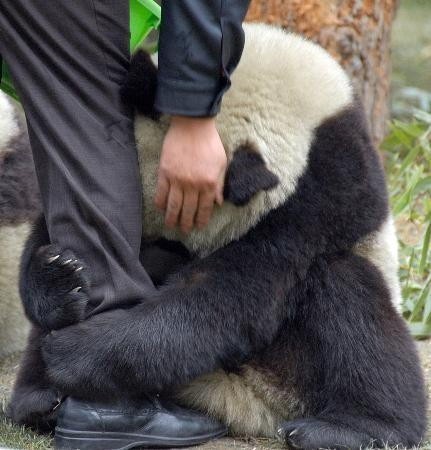This week’s column is a little different. Instead of officially published works, I am discussing fan-generated material, specifically, YouTube videos. But first, some background.
The Behemoths of Mass Popular Entertainment
Living in Taiwan has changed how I think of Hollywood and Anime/Manga.
In the United States, Hollywood is domestic. It is (for better or worse) a part of American culture. Many Americans claim that Hollywood is corrupting American culture, but it is not perceived as an outside force threatening to wipe out American cultural identity.
Much as many Americans love anime and manga, they are not perceived as existential threats to American culture. While some Americans claim that anime/manga are corrupting American culture, and the animation and comic book industries have felt the effects of competition with anime and manga, nobody is scared that anime and manga will crowd out American cultural identity.
In Taiwan … the situation is different.
Most movies which run in Taiwanese movie theatres nowadays originate in Hollywood. Most of the cartoons available in Taiwan are anime (and if they’re not anime, they’re probably from Hollywood). And most comic books published in Taiwan are translated from Japanese.
In the 1990s, the Taiwanese movie industry collapsed, and prior to 2007, local movies were for art-film types, and everybody else ignored them. This situation changed when Cape No. 7, a local film, became the second-highest grossing film in the history of the Taiwanese box office (first place: Titanic). Since 2007, ordinary Taiwanese people have started watching new local films in significant numbers, and other local box office hits have followed, including Night Market Hero.
From an anecdotal perspective, local blockbusters seem to get the Taiwanese people I encounter more excited than Hollywood blockbusters. In particular, I recall that there was an entire month when it seemed like everybody was talking about Seediq Bale. However, there are still many more Hollywood blockbusters per year than Taiwanese blockbusters per year, which means that, if I ask a Taiwanese person ‘Have you seen any good movies lately?’ they are much more likely to talk about the Hollywood movie they just saw than the local movie they just saw.
Japan has even more dominance over the Taiwanese comic market than Hollywood has over the Taiwanese movie market. The dominance is so extreme that I’ve met Taiwanese people who aren’t even aware that there are non-Japanese comics published in Taiwan (at least everyone in Taiwan *knows* that there are local movies).
I’ve been asked by multiple people who have travelled in Taiwan how to find Taiwanese manhua, since they themselves couldn’t find any. Imagine a traveller in a major Japanese city being unable to find manga, or even in a major American city and unable to find American comics.
As far as animation … the only local animation I know about in Taiwan is Next Media Animation, and they’re owned by a Hong Kong company.

I saw a bit of Neon Genesis Evangelion on Taiwanese TV during Lunar New Year last year. Can you imagine a mainstream American TV station airing Evangelion during Christmas?
On the one hand, many Taiwanese people love Hollywood movies/TV shows and/or Japanese anime/manga (and many love Hong Kong media, and many love K-dramas, and the Hindi-film fanbase, while small, it is rapidly growing). On the other hand, some Taiwanese people see Hollywood and anime/manga taking up most the oxygen that local storytellers need just to breathe, in other words, they are an existential threat to local culture.
How do Taiwanese people and other Chinese speakers respond to situation of loving the very thing that threatens to crowd out their own culture?
Well, they respond in many ways. One way is adapting Japanese manga into local TV dramas, which always, based on the ones I’ve seen, includes Taiwanizing the stories – changing the setting to Japan, making the characters Taiwanese, adding elements specific to Taiwanese culture, etc. Another way is dubbing Hollywood movie / anime clips into Hokkien and putting them on YouTube.
But before I get to the YouTube videos, some background on Hoklo culture.
Some Notes about Hoklo Culture
First of all, it’s impossible to sum up a culture in just a few paragraphs. This is not intended to be a comprehensive introduction, or even a functional introduction – I’m just trying to provide some context.
‘Hoklo’ is to ‘Chinese’ what ‘Spanish’ is to ‘European’ – Hoklo people are Chinese, but a distinct subset. The Hoklo people mainly come from southern Fujian province, and they speak a language which is called ‘Hokkien’ or ‘Minnan’, which has many, many, MANY dialects. The dialect spoken around the city of Xiamen is called ‘Amoy’, the dialect spoken in Taiwan is called ‘Taiwanese’ (though Taiwanese Hokkien itself has distinct dialects varying by region in Taiwan), and the dialect spoken in Singapore/Malaysia is called ‘Penang Hokkien’.
I’ve been to Kinmen, an island in southern Fujian province where Amoy is spoken. There are many ‘wind lions’ around the island. The people felt that good times turned into bad times too quickly, so the wind lions were put up to prevent good luck from getting blown away by the wind. Even though this is specific to Kinmen, I think it represents something about the Hoklo experience in general.
Southern Fujian has historically been the poorest and most politically unstable part of coastal China, but now it’s one of the wealthier parts of China. Likewise, Taiwanese people (70% of whom identify as Hoklo) are wealthier than their Chinese counterparts, and Hoklo people in southeast Asia are often wealthier than their neighbors – but the reason why so many Hoklo people left China in the first place was because of their poverty and difficult lives.
And there is still the possibility that the current situation could get really horrible really quickly – Taiwan is a lot more militarized than California (because it needs to defend itself from China), Fujian is the most militarized part of coastal China (because, at a minimum, it has to be able to withstand a Taiwanese counterattack, and would likely be the launching point of an offensive on Taiwan), Singapore is nervous about Malaysia, and as recently as the 1990s, Chinese Indonesians (many of whom are Hoklo) were the targets of ethnic-based violence, which inspired many of them to leave Indonesia.
The origin of much Hoklo wealth lies in international trade – in fact, the English word ‘tea’ comes from Hokkien (guess who first sold tea to the British). Because of their geographical dispersion and their participation in international trade, Hoklo people, particularly those outside of China, know a lot about different cultures and have taken many aspects of other cultures as a part of their own. On the other hand, Hoklo culture itself is considered to be under threat pretty much everywhere even in Taiwan where they have a majority.
Even though there are over 40 million native speakers of Hokkien, there is no writing system which is accepted by the majority, or even a large plurality, of native speakers. This means there are very few books published in Hokkien, and most native speakers would not be able to read them easily. Therefore, Hoklo people rely on other languages (often Mandarin) for written communication. In modern times, lacking a widely accepted writing system is a major threat to a language.
What point am I trying to make? This point: Hoklo people, historically and today, are very open to other cultures, in fact much of their wealth comes from understanding foreign people, yet they often feel like they are in danger of losing their identity, or worse.
Finally, the Videos
As far as I know, no Hollywood movie or anime has ever been officially dubbed in Hokkien (and I am certain no manga has been published in Hokkien). There is not even the expectation that things will be translated into Hokkien – interactions with outsiders are conducted in Mandarin or foreign languages.
Therefore, many people find the idea of Hollywood movies and anime in Hokkien very funny.
Enter YouTube
The most popular Hokkien Hollywood video is this famous scene from Star Wars, dubbed in Hokkien. The Hokkien used is a direct translation from the original English dialogue, so I think subtitles are unnecessary:
However, these videos are intended to be entertaining, so sometimes the video makers take *ahem* liberties with the translation. Here is Hokkien James Bond, with English subtitles (warning: immature sexual humor)
And if you had any doubts concerning whether or not there is an overlap between this Hokkien fandubbers and slash fandom, let this Lord of the Rings video put those doubts to rest:
Of course, Hollywood movies are not the only subjects of Hokkien fandubs – anime gets Hokkien treatment too (though generally without English subtitles, which is why I’m not providing examples).
Now, I think many of the people who make these videos simply want to post something fun and silly on Youtube. However, at least one maker of these fan videos has an explicit social point to make.
This video starts with Taiwanese students working hard to learn various foreign languages, yet they can’t speak Taiwanese. The point that Taiwanese people are choosing foreign culture over their own culture is very clear. Then the video proceeds to present clips from Hollywood movies, anime, and various other things, all dubbed in Hokkien (if you want to know which movies an anime get dubbed, watch it yourself).
It’s hard to explain, but in Taiwan (and I suspect this is also true for Hoklo people in China and southeast Asia), Taiwanese is considered a very personal language – for example, even for people who use Mandarin as their primary language, Taiwanese is the language of choice for swearing.
Hokkien also symbolizes local control, whereas Mandarin and foreign languages represent centralized and distant authority. For example, in both Taiwan and China, formal education happens in Mandarin, as mandated by the central government from Beijing/Nanjing (even though it’s been many decades since the Republic of China, the current government of Taiwan, controlled China, it originally was a government based in Beijing/Nanjing, not Taipei). Furthermore, in Singapore, the government encourages all ethnic Chinese residents to speak Mandarin, in spite of the fact that Mandarin is, for most of them, not their heritage language. Likewise, Mandarin and foreign languages represent art controlled by distant, centralized authorities (media corporations), whereas Hokkien represents folk traditions. This is one reason why people have such powerful feelings about the choice of language in the Chinese speaking world.
Fandubbing is one way for Hokkien speakers to reclaim some control from the central media authorities.
***
Anyway, Happy Lunar New Year! This is the last post of the year of the Dragon. I will celebrate the new year … by putting this column on hiatus for a few weeks. The next post should come on February 26 (I also have a special post planned for February 28).
Sara K. is Jewish, yet she is ignorant of much of Jewish culture. She thinks it is terribly ironic that, as bad as her Taiwanese and Hakka language skills are, they are currently a hundred times better than her Hebrew language skills. When she wonders why many Taiwanese people invest so much more effort into learning foreign languages than mastering Taiwanese/Hakka, she then remembers the people in her family who wonder why she is putting so much effort into mastering Chinese instead of learning Hebrew, and then she thinks ‘oh’.















